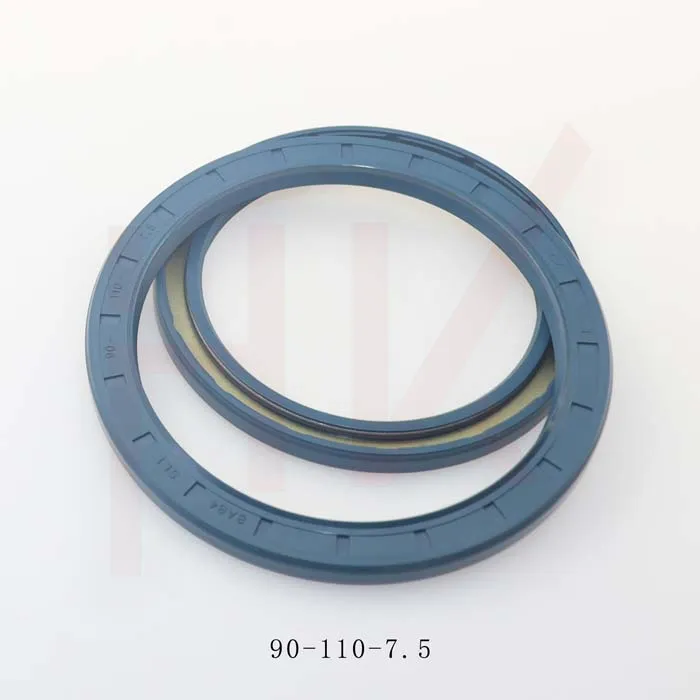Dec . 30, 2024 20:41 Back to list
excavator seal
Understanding Excavator Seals and Their Importance in Construction Equipment
Excavators are vital tools in the construction and demolition industries, enabling operators to dig, lift, and move large amounts of earth and debris efficiently. Behind the scenes of their powerful performance lies an essential component seals. Seals in excavators are crucial for maintaining the machine's hydraulic systems, preventing leaks, and ensuring optimal functionality. In this article, we will delve into the different types of excavator seals, their roles, and the importance of regular maintenance to extend the life of these machines.
Types of Excavator Seals
Excavators incorporate several types of seals, each designed to fulfill specific roles in the hydraulic system. The most common types of seals found in excavators include
1. Rod Seals These seals are placed on the piston rods of the hydraulic cylinder. Their primary function is to keep hydraulic fluid contained within the cylinder, preventing leaks. If rod seals fail, it can lead to a significant loss of hydraulic pressure, compromising the excavator's performance.
2. Piston Seals Located on the piston within the hydraulic cylinder, piston seals work to create a tight seal between the fluid and the cylinder walls. They ensure that hydraulic fluid can exert pressure to activate the excavator's movement. Piston seals must withstand high pressures and temperatures, making them crucial for the efficient operation of the excavator.
3. Wear Rings These components are not seals in the traditional sense but play a significant role in protecting the seals themselves. Wear rings are placed around the piston or the cylinder to minimize wear and tear caused by friction during operation. They help maintain the integrity of the seals, extending their lifespan and ensuring consistent performance.
4. O-Rings O-Rings are versatile seals used throughout the excavator's hydraulic system. These circular seals help to prevent leaks at various junctions and connections. They are commonly made of rubber or other elastomeric materials, providing a reliable barrier against fluid escape.
The Importance of Seals in Excavators
The performance of an excavator is heavily reliant on its hydraulic system, which in turn depends on effective sealing. Here are a few reasons why seals are critically important
- Preventing Fluid Leaks Leaking hydraulic fluid not only reduces the efficiency of an excavator but also poses safety hazards. Oil spills can lead to slippery surfaces, increasing the risk of accidents on job sites. Maintaining intact seals minimizes the risk of such leaks.
excavator seal

- Maintaining Pressure The hydraulic system relies on pressure to function effectively. Damaged seals can result in pressure loss, making it challenging for operators to perform tasks such as digging or lifting. Strong seals ensure that the hydraulic pressure is preserved, allowing for maximum machine performance.
- Prolonging Equipment Life Regular maintenance and replacement of worn seals are essential for prolonging the lifespan of an excavator. Neglecting seals can lead to more significant hydraulic system failures, resulting in costly repairs and downtime. By ensuring that seals are in good condition, operators can extend the life of their machinery.
- Enhanced Safety Excavators are powerful machines, and any malfunction can result in dangerous situations. Properly functioning seals contribute to the overall safety of the equipment, protecting operators and crew members on the job site.
Maintenance Tips for Excavator Seals
To keep excavator seals in optimal condition, operators should follow some best practices
- Regular Inspections Frequent inspections of seals can help identify early signs of wear or damage. Look for any signs of leakage, deformation, or cracking around the seals.
- Proper Lubrication Ensuring that seals are adequately lubricated can help reduce friction and wear, extending their lifespan.
- Timely Replacement When signs of wear are detected, it's crucial to replace seals promptly. Delaying the replacement can lead to more significant hydraulic issues.
- Use Quality Parts When replacing seals, always opt for high-quality parts that are compatible with the excavator's specifications. Quality seals can withstand the rigors of heavy machinery better than cheaper alternatives.
In conclusion, excavator seals are an integral part of maintaining the efficiency and safety of construction equipment. By understanding their importance and implementing proper maintenance practices, operators can enhance the performance of their excavators and prolong their service life, ultimately contributing to the success of construction projects.
-
TCN Oil Seal Metal Ring Reinforcement for Heavy Machinery
NewsJul.25,2025
-
Rotary Lip Seal Spring-Loaded Design for High-Speed Applications
NewsJul.25,2025
-
Hydraulic Cylinder Seals Polyurethane Material for High-Impact Jobs
NewsJul.25,2025
-
High Pressure Oil Seal Polyurethane Coating Wear Resistance
NewsJul.25,2025
-
Dust Proof Seal Double Lip Design for Construction Equipment
NewsJul.25,2025
-
Hub Seal Polyurethane Wear Resistance in Agricultural Vehicles
NewsJul.25,2025
-
The Trans-formative Journey of Wheel Hub Oil Seals
NewsJun.06,2025
Products categories
















